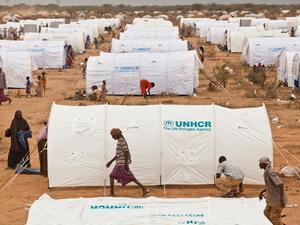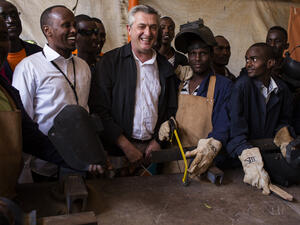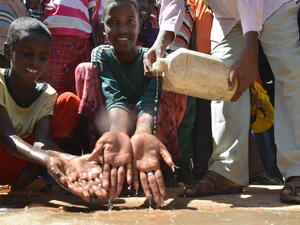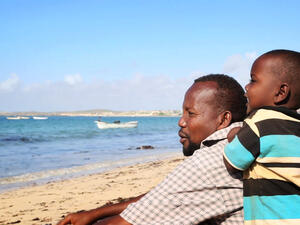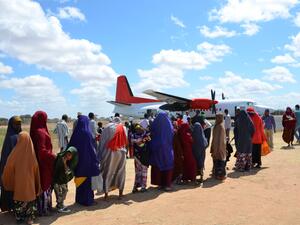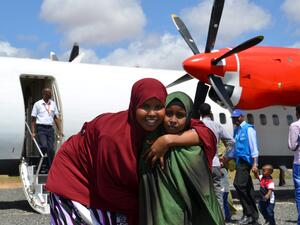Kenya: Six air-drops so far made to cut-off Dadaab refugees
Kenya: Six air-drops so far made to cut-off Dadaab refugees
Six air-drops have been made by a US Air Force C-130 cargo plane delivering UNHCR relief supplies to thousands of refugees cut off for a month by flood waters and impassable roads in the Dadaab camps in northern Kenya.
By Monday evening, 21,203 mosquito nets, 6,903 pieces of plastic sheeting, 193 emergency lightweight tents, 2.8 metric tons of soap, 167 kitchen sets, 25 boxes of assorted medicines and other equipment for extension of water facilities for a new site had been successfully dropped into Dadaab. The air-drops, planned to continue until 13 December, have been very successful, with only about 2 per cent of goods damaged on impact.
Weather in Dadaab has remained mainly dry and roads have become reasonably passable. On Monday, for the first time in weeks, two trucks travelled from Dadaab to Garissa, the nearest major town, 100 km away. Since the onset of heavy rains, the road linking Garissa and Dadaab has been impassable, forcing UNHCR and its partners in Dadaab to resort to costly air transport to bring in much-needed supplies for the 160,000 mainly Somali refugees hosted in the three camps which make up the Dadaab complex.
The trucks which went to Garissa were able to bring back 6,000 litres of fuel - a big boost to our depleted stocks that were expected to run out by this weekend. If roads remain passable, we will likely cancel plans for the airlift of fuel and instead truck in supplies from Garissa. We hope to send two more trucks to Garissa today, Tuesday. In the meantime, the government through the Ministry of Public Works has begun repairing the road linking Dadaab and Garissa.
We are hopeful that we will regain road access to Garissa. This will help the transfer of patients from Dadaab to the provincial hospital in Garissa. Our health partner, GTZ, is reporting a big backlog of medical referrals to Garissa.


